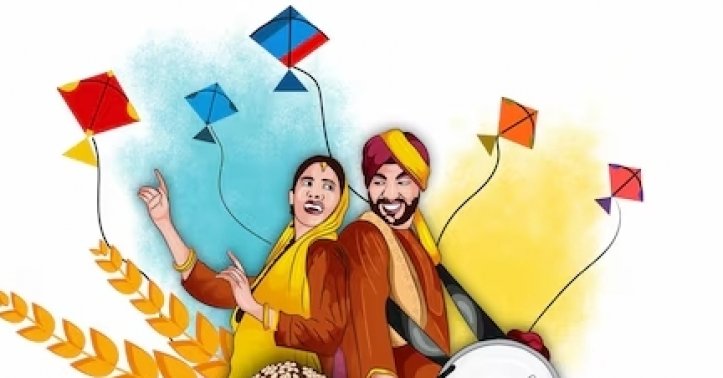
Dhullia Bhatti
The Revolutionary Hero Behind Lohri Festival
by Dr. Ritesh Sinha
Lohri, the festival of harvest and togetherness, is celebrated with much fervor and joy in North India. However, many are unaware of the historical figure whose legacy is deeply intertwined with this festival—Abdullah Rai Bhatti, popularly known as Dulla Bhatti. A true revolutionary and the world’s first farmer leader, Dulla Bhatti symbolizes the fight for justice, equality, and farmers' rights.
The Birth of a Legend
Born in 1569 in Pindi Bhattian (now in Pakistan), Dulla Bhatti inherited a legacy of resistance against oppression. His father, Farid Bhatti, was hanged publicly in Lahore for leading a farmer rebellion. Before him, Dulla’s grandfather, Sandal Bhatti, had also been martyred for his role in farmers’ movements. Dulla Bhatti was born into a lineage of warriors who stood against exploitation.
The Beginning of a Revolution
Dulla Bhatti’s first act of defiance was the killing of Bakka Malkera, a Mughal officer responsible for oppressing farmers. This act not only avenged his family but also ignited a flame of rebellion across the region. The people of Lahore and surrounding areas hailed him as a hero, and his fame spread far and wide.
A Protector of Honor
Dulla Bhatti’s legacy is not just of rebellion but also of compassion. He was known for rescuing young women from being sold into slavery. He arranged their marriages and provided them with dowries, earning him the title of "Punjab's Robin Hood." The famous Lohri song, sung around bonfires, celebrates his deeds:
“Sundar Mundariye ho,
Tera kaun vichara ho,
Dulla Bhatti wala ho…”
A Threat to the Mughal Empire
Dulla Bhatti’s resistance grew so powerful that even Emperor Akbar was compelled to shift his capital from Agra to Lahore in 1598 to confront him. It was the first time a Mughal emperor personally led an army to face a local rebel. Dulla Bhatti even captured Akbar once but released him after he swore on the Quran.
Martyrdom of a Hero
Dulla Bhatti’s revolutionary movement for farmers’ rights became a threat to the Mughal Empire. Akbar, under the pretext of appointing him as Punjab’s Governor General, lured him to Lahore. Betrayed and captured, Dulla Bhatti was sentenced to death. In 1599, he was publicly hanged in Lahore’s Naulakha Bazaar. His last words, as recorded by Shah Hussain, resonate even today:
"No son of Punjab shall ever betray this land or its honor."
Legacy of Dulla Bhatti
Dulla Bhatti lives on as a folk hero and a symbol of resistance. His birthplace, Pindi Bhattian, is still known as Sandal Bar, named after his grandfather. Despite being branded a bandit in Mughal records, he remains a revered figure in Punjab.
Lohri, celebrated in his honor, is not just a festival of harvest but also a tribute to his courage and sacrifice. The til (sesame), gud (jaggery), and bonfire offerings symbolize the farmers’ gratitude and respect for Dulla Bhatti’s fight for their rights.
Conclusion
Dulla Bhatti’s story reminds us of the importance of standing up against oppression and fighting for justice. As we celebrate Lohri, let us also honor the revolutionary spirit of Dulla Bhatti, the protector of farmers and the pride of Punjab.
Happy Lohri to all!








